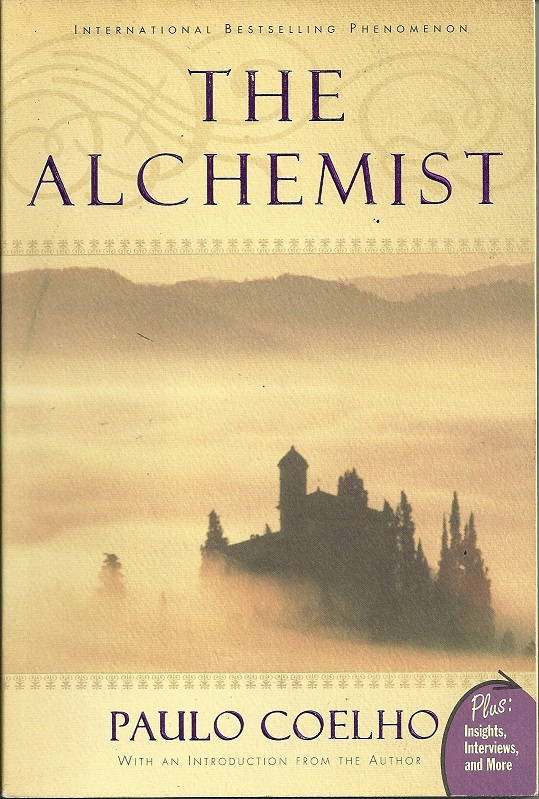Two different pages on Wikipedia mention “sixty-five million.” Let’s examine both “sixty-five million copies” of a book and “sixty-five million years” since the “extinction” of pterosaurs. I believe that both ideas are mistakes.
The Alchemist, a short novel by Paulo Coelho, was acclaimed, at least before January 18, 2012, on Wikipedia and elsewhere, as having sold sixty-five million copies. I had just finished reading the book and noticed the back cover of the paperback (English edition printed a few years ago); it conflicted with what I had read on Wikipedia. I looked deeper and, sure enough, found that my suspicion was well founded, for Coelho’s own web page reveals that twenty-one million copies had been sold worldwide. I believe that the back cover of the paperback I had read was correct, that the “sixty-five million” was the total number of sales of all Coelho’s novels (not just this one short novel) up until that paperback printing of the English version of The Alchemist (a few years ago). I believe that by the beginning of 2012, about a hundred million copies had been sold of all his many books, including The Alchemist. Still, twenty-one million is a lot less than sixty-five million, and the subject of the Wikipedia page was that particular novel, not all the novels by that author. The subject now involves mistakes on Wikipedia.
On rare occasions I edit Wikipedia pages, and on January 17, 2012, I edited The Alchemist page, to correct that mistake. So why think of it? To most ordinary persons, who will never sell any millions of anything or be famous for anything, twenty-one million seems practically the same as sixty-five million. The problem lies in casual thinking: Too many of us rely on others to think for us, and we do so too often, too much, and in matters too important. I don’t expect many persons to spend half a year on mathematical calculations to test Darwin’s idea that natural selection causes small simple organisms to evolve into large complex ones (I did so with my Evolutionary Boundary), but I expect more persons to be more open-minded to the possibility that the minority may sometimes be correct and the majority may sometimes be incorrect; even the majority of biology professors may be mistaken regarding a common assumption.
I googled “sixty-five million Alchemist” (not in quotes) and saw the influence of Wikipedia. The third entry, by an online bookseller, quoted Wikipedia’s mistake (quoting Wikipedia’s paragraph as it stood before I corrected the error). The fourth entry found by Google quoted Publishers Weekly: “Sixty-five million readers can’t be wrong. The Alchemist, Eleven Minutes, and Coelho’s other books will easily carry fans . . .” At least Publishers Weekly does not look at Wikipedia when a number is critical. The fifth entry mentions twenty-one million copies of The Alchemist that were sold worldwide. The seventh entry, another bookseller page for The Alchemist, says, “It has sold more than sixty-five million copies.” (It appears that booksellers might rely too much on Wikipedia.) A brief glimpse at the second-page results from the Google search seems to confirm that Wikipedia’s influence is great, even when a number is far from correct.
Sixty-Five Million Years Without Pterosaurs?
Pterosaur extinction has been taken for granted, for generations, in Western countries like the United States. So why doubt extinction? Countless eyewitnesses, from around the world, have testified and continue to testify that this featherless flying creature still lives. Not every species of pterosaur became extinct long ago. Countless repetitions of something like “they all became extinct by 65 million years ago” (referring to dinosaurs and pterosaurs) does not prove even one species became extinct; it does not even accumulate evidence for that dogma. But increasing numbers of eyewitnesses of living pterosaurs—they accumulate evidence for life and discredit the universal-extinction doctrine.
An oblique response can lead to unintentional injury to reasoning. If a human who was bitten by a snake felt like the wound was burning, why label the snake with that sensation? It seems to me much more likely that “fiery” refers to something like fire in the animal, for that is what is being labeled: It is the animal.
.

Available on Amazon.com — The Alchemist (by Paulo Cuelho)
.
The best selling nonfiction cryptozoology book on modern living pterosaurs: Live Pterosaurs in America (third edition), available on Amazon.com (usually at a discounted price on Amazon)




One Reply to “Sixty-Five Million”
Comments are closed.